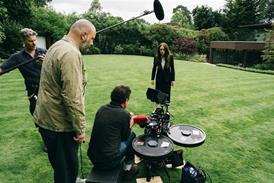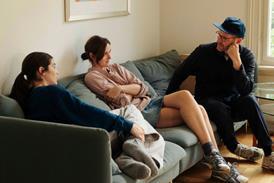European Commission President Jose Manuel Barroso has committed to a “close and permanent exchange and cooperation” with European filmmakers for planning the framework of the future MEDIA Programme, according to France’s ARP.
The delegation of Costa Gavras, Theo Angelopoulos, Cristian Mungiu and Radu Mihaileanu spoke of a “fruitful exchange” during their meeting with Barroso and EU Culture Commissioner Androulla Vassiliou on the eve of Friday’s public hearing in Brussels on the future of MEDIA.
“President Barroso is a man of culture who shares the deeply-held belief of filmmakers that the MEDIA Programme should be upheld, in both its operational and budgetary autonomy,” the ARP board said, adding that Barroso had “not only reassured the filmmakers as to the continuation of budgetary resources, but he even expressed his desire to further increase them in order to meet the complex challenges created by major economic and digital developments.”
“The best way to improve the MEDIA Programme is to have feedback from the filmmakers,” Mungiu noted. “As long as we are part of the process, I think the steps in front of us are going to be ones to make the programme better.”
In opening remarks at Friday’s public hearing, Jan Truszczynski, Director-General of Directorate-General for Education and Culture, said the Commission planned to present the legal proposals for a new MEDIA Programme to the European Parliament and the Council of Ministers by the end of 2011.
The Commission is looking at bringing the EU’s Culture Programme together with MEDIA and MEDIA Mundus within a new Creative Europe programme as part of a concerted action for the cultural sector and contribution to the Europe 2020 Strategy for smart, sustainable and inclusive growth.
“I do realise that, for many, the value of a stand-alone MEDIA Programme seems to be stronger and there is the apprehension that the benefits to date of a stand-alone would be less in a bigger programme,” Truszczynski observed, adding that he was “100% confident” that the MEDIA strand would “not suffer at all” under such an umbrella.
“What the new [MEDIA] programme will look like will depend on the results of the consultation, [the hearing] today, further meetings of different [focus] groups and the input of these people and others into the process,” MEDIA unit head Aviva Silver said on Friday. “So, in many ways, the future is in your hands.”
“We are trying to be as open as possible and would welcome written contributions on how MEDIA should be adapted,” added Vladimir Sucha, Director for Culture, Multilingualism and Communication at Education and Culture DG, as he brought the hearing to a close. “It’s not about lobbying, but about listening and having an exchange of views.”
Over 300 audiovisual professionals from all over Europe gathered at the European Commission’s Charlemagne Building for the day-long hearing, including representatives from such industry groups as the Federation of European Film Directors (FERA), European Producers Club, the Society of Audiovisual Authors (SAA), European Games Developer Federation, and from the MEDIA-backed initiatives EAVE, eQuinoxe, Europa Cinemas, European Film Promotion, and European Film Academy.
Apart from the hearing’s two panel discussions, there were contributions from the floor by representatives of the UK’s Film: 21st Century Literacy, Film Education and British Film Institute, the Danish Film Directors Guild, the German-French Master Class, the International Leipzig Festival for Documentary and Animated Film, and Amsterdam’s Cinekid festival, among others.




















No comments yet